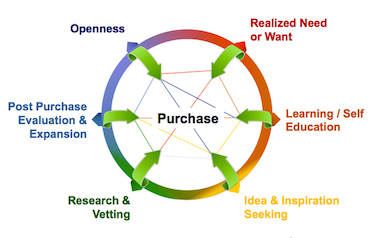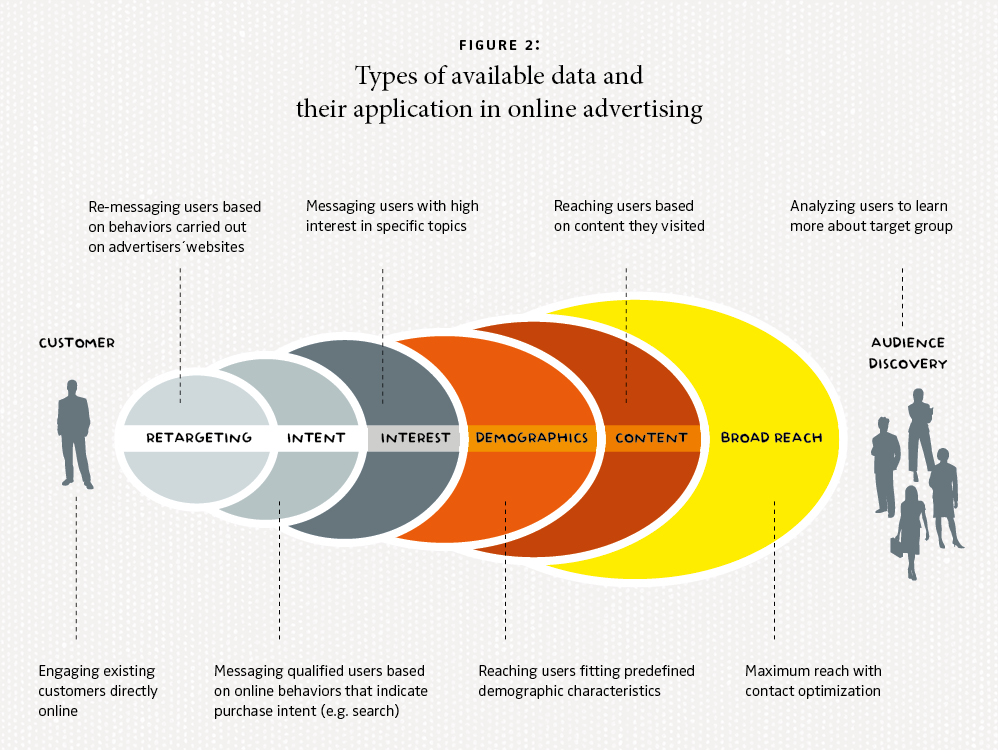Google is ‘God’… Why It’s a Blessing and Not a Curse for Your Marketing Efforts
Paula Folz Writer
We all know that the Internet is changing the way we access information, seek advice and, ultimately, think. But it goes even deeper than that. We turn to Google more than we turn to our friends and loved ones for answers, for insights and for information. And as we seek answers, by the very nature of the questions we ask, the things we look at, how long we look at them and virtually every behavior and choice we make while in the digital realm – Google is learning about us.
So, let’s take a step back as ask ourselves if Google is really ‘God’ … Google certainly seems to be all-knowing. But the true power of Google isn’t that it indexes and ranks over 9.5 billion web pages, it lies in its ability to predict consumer behaviors through ever-evolving analytics.
Advertisements follow you everywhere, and we know that the big tech companies like Google and Facebook are constantly mining our online attention to track every single move to serve their needs. And their needs? For them to thrive and grow, they must sell ads.
So don’t be surprised the next time you have a private conversation with your friend about a specific brand of head phones you were planning to buy, only to see an ad for those head phones the next time you pick up your phone.
Sooooo creepy, right?
Well, yes and no. These companies are fully dedicated to maximizing the effectiveness of advertising on the Internet and ensuring people spend as much time on the Internet as possible, all to sell more ads. So however you feel about it personally, you cannot deny that one of the most effective ways for businesses to market themselves is by engaging in targeted advertising supported by data analytics, machine learning and user-data algorithms.
Additionally, these companies have become more advanced in understanding us well enough to help their algorithms arrive at the same conclusions, either by inferring from your past preferences or by extrapolating consumer behavioral patterns (people who bought this item also bought that), long before we reach them.

None of this is a secret. There are documentaries, it seems like Mark Zuckerberg is testifying before Senate every other month and we are always hearing about privacy and user data controversies on the news.
This could go two ways, right?
On the one hand, it is possible this awareness is actually a very good thing because it may increase ad performance when it makes customers feel that the products they see are personally relevant. Supporters of cookies and other surveillance tools say that more-relevant advertising leads to a more valuable, enjoyable Internet experience.
On the other hand, awareness could decrease ad performance and completely backfire if it provokes concerns about privacy.
For the consumer who prefers relevant ads over irrelevant ones (that’s all of us, right?), it’s important that marketers get the balance right. Digital marketers need to understand when the use of consumer data to personalize ads will be met with acceptance or annoyance so that they can honor consumers’ expectations about how their information should be used.
But there’s more and it’s not all about targeted advertising and data mining. What if you could predict which visitors to your website were most likely to make a purchase within the next week? What if you could go one step further and predict how unlikely active users are to revisit your site?

This brings us to Google Analytics
An attractive, optimized and generally well-done website is indispensable in any marketing strategy. Driving traffic to your own website gives you full control over the process and helps you move your users through the conversion funnel.
To optimize your website however, you need as much information as you can get your hands on. Luckily for us, and thanks to Google Analytics, the Kinetic team can access everything you’ve always wanted to know about your website visitors, analyze that information and use it to maximize your marketing efforts.
Google Analytics provide us with keyword insights (to improve search engine optimization or SEO) and allows us to track where our clients’ website visitors are coming from and how much time people are spending on each page of a particular website. This, in turn, allows us to evaluate how impactful or effective content is and take steps to improve it where necessary.
Embracing the Paradox
Like many things in religion, sometimes we just have to accept and come to terms with two seemingly self-contradictory ideas or premises. So, while you may not be in love with the idea of big tech collecting your personal user information, do you really want to be bombarded with ads that have zero relevance to you? Do you like the ‘suggested purchases’ at the bottom of your Amazon search screen? Do you appreciate easily accessible and navigable websites that offer compelling content?
So, whether you’re a believer or not in the Google is ‘God’ theory, there is no escaping the importance of your on-line presence – be that website, email campaigns, social media or targeted advertising. The trick is finding the balance of using the tools available to you and being transparent with your audience.
Have questions or want to learn more? Please reach out! I’m at paula@kineticmc.com.
Paula Folz
Writer
She loves languages, adventure and travel. She loves to explore new perspectives and learn about diverse life experiences. Those are terrific qualities for a copywriter, and Paula Folz puts them to work for clients every day. Her decade of experience in marketing and proposal management in the architecture/engineering industry adds even more insight.
She’s excelled at copywriting for years, but with Kinetic clients, “I get to be more creative than ever before. In many ways, this is cultural tourism as I learn about incredible companies that we get to work with on a deep level.” Paula, from Casper, Wyoming, earned a BA in Spanish at the University of Wyoming, where she also did graduate studies in Communications/Marketing.
Read more about Paula


